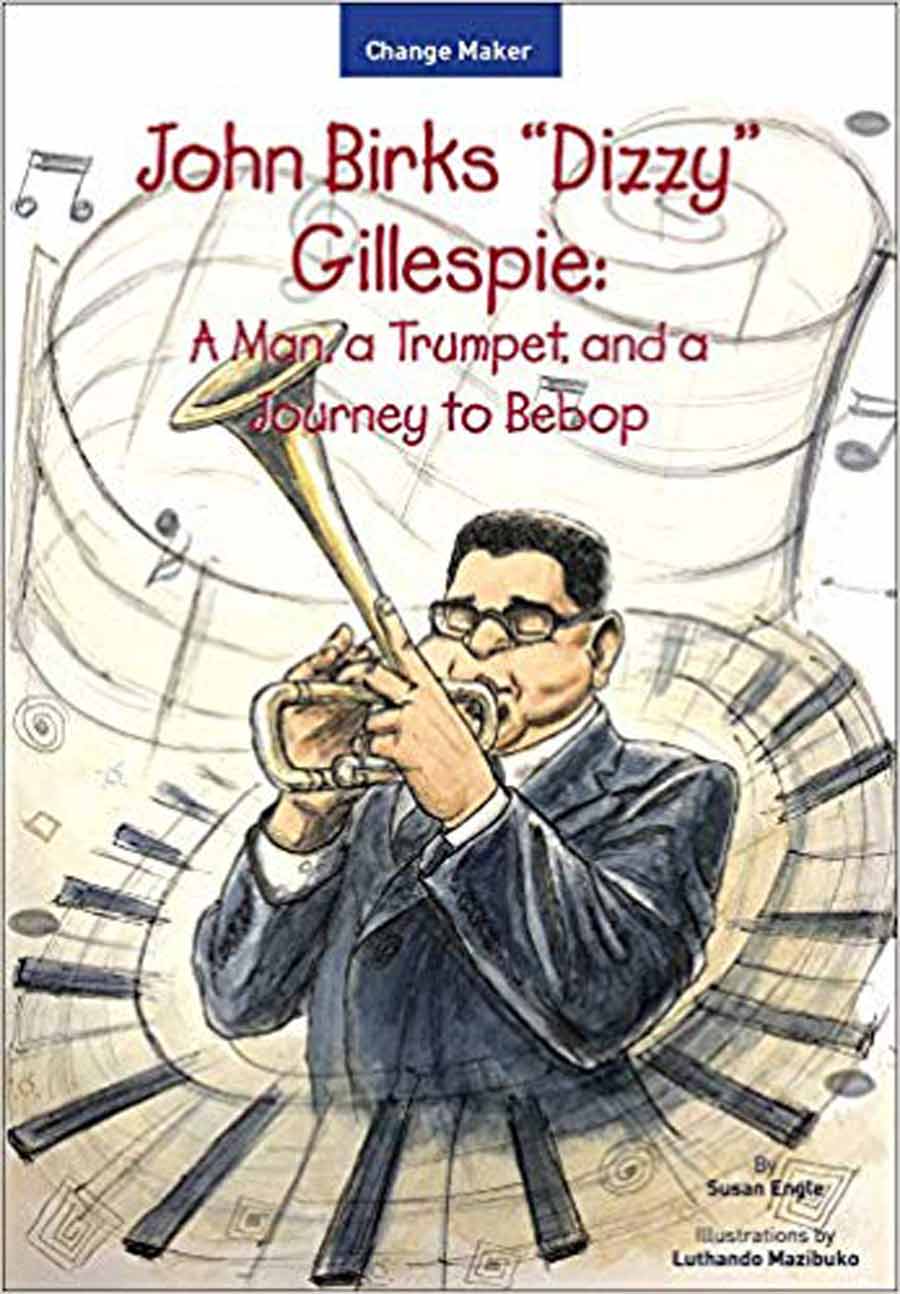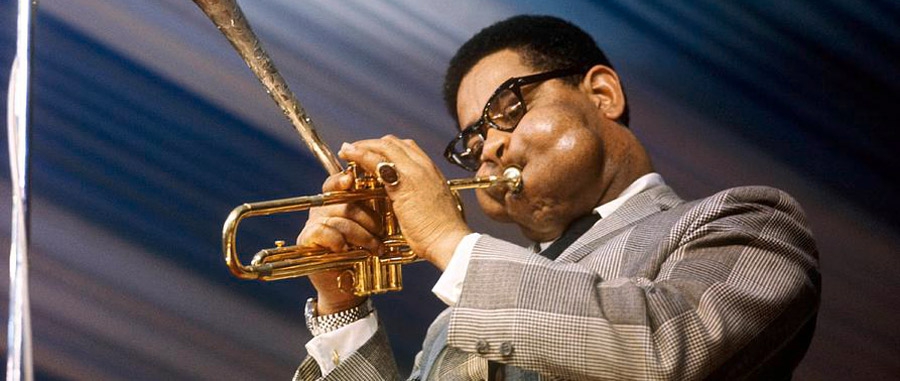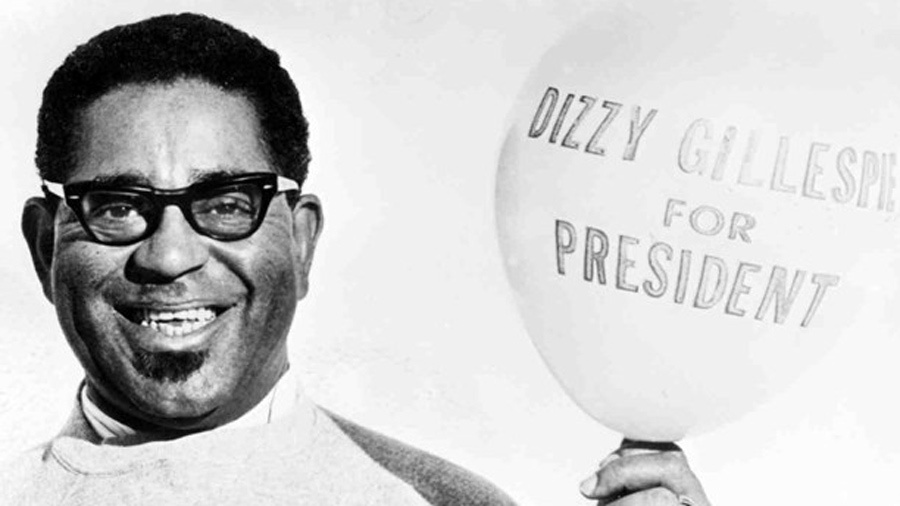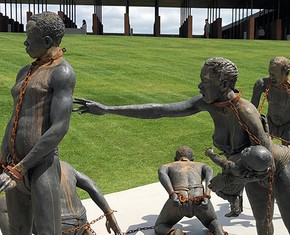The views expressed in our content reflect individual perspectives and do not represent the authoritative views of the Baha'i Faith.
Susan Engle’s new book – John Birks “Dizzy” Gillespie: A Man, a Trumpet, and a Journey to Bebop – marks the second in Bellwood Press’ Change Maker series, about the people who altered America.
 But how can a musician change an entire culture?
But how can a musician change an entire culture?
At BahaiTeachings.org, we wanted to know more, so we asked Ms. Engle to tell us about her new book, which Bellwood will release today.
Q: Susan, what were your intentions when writing the book?
A: Dizzy Gillespie seems like a force of nature to me. He invested his time and seemingly endless energy into playing jazz, writing music, mentoring young musicians, and helping to bring forth a style of music called Bebop that still affects music evolving today:
Bebop Jazz set jazz music apart as an expressive and beautiful art form, one which belonged to Black America whole-heartedly, and set the base for other forms of jazz which would become competitive with classical music in terms of artistry and timelessness. The shift from Swing to Bop is the most important shift thus far in the world of jazz music . . . – The Importance of Bebop Jazz
It seemed to me that a musical icon like Dizzy, who also found the Baha’i Faith in the late 1960s, deserved a biography accessible to young people, so they could come to appreciate his personality, his art, and his service to others. Since the Change Maker series from Bellwood Press focuses on people who change U.S. culture in a significant way, Dizzy’s life serves as an excellent example.
Q: Can you summarize the creative thrust for the book?
A: I’ll try! Baha’is believe that truth is important to the just running of the world:
… reality is indivisible and not multiple. It is evident, therefore, that there is nothing of greater importance to mankind than the investigation of truth. – Abdu’l-Baha, The Promulgation of Universal Peace, p. 63.
I am passionate about truth – but so many stories of true heroes have been hidden from young people in our schools, due to views on history that gloss over the truth or tell only one part of history. The time has come to celebrate the contributions of people whose courage and dedication changed the world.
In researching Baha’is who have contributed to the wider culture, it delighted me to see that many of those people have been African American, such as Dizzy Gillespie, Robert Sengstacke Abbott and Alain Locke. Of course, many spiritual heroes exist in the history of the Baha’i Faith, but I hoped that writing books about people who did courageous things, people who also became Baha’is, could reach the classrooms, libraries, and bookshelves of teachers, librarians and parents who might not otherwise give stories to young people based on the spiritual deeds of Baha’is. We are only transitioning to a world where spiritual values are universally sought out on a daily basis by institutions and families. Until that day comes, I wanted to introduce some real-life heroes with Baha’i values as a gentle part of the storytelling.
Q: What parts of the book itself exemplify Dizzy Gillespie’s spiritual heroism?
A: In spite of difficult childhood experiences, Dizzy grew up with a sense of his worth as a human being, a message not delivered to African Americans by the wider culture in the United States. The book tells a few stories of the racism he faced and the toll it took on him as the years rolled on and conditions didn’t improve. By the time Martin Luther King, Jr. was assassinated, Dizzy fell into deep despair. With the work of a publicist, Dizzy decided to run for the presidency of the United States in 1964 to help change conditions for African Americans in the country.
Though his bid wasn’t taken seriously by most people, it enabled him to set out his views on things that needed to change to begin to foster the equality of all people. Four years after the election of Lyndon Johnson, Dizzy not only found the Faith and became a Baha’i, he also was not shy in talking about it publicly every time he had a chance. He embraced the Baha’i concept of progressive revelation – and was pleased to announce how music evolved in the same way religion had evolved over the decades:
All the evidence inescapably demonstrates that the principal influence in the gradual civilizing of human character, far from being a simple endowment of nature, has been the effect produced on the rational soul by the guidance of the successive Messengers of God. It has been through Their intervention, and through it alone, that the peoples of the world, of whatever nation or religion, have learned the values and ideals that have empowered them to put material resources and technological means at the service of human betterment. – The Universal House of Justice, 26 November 2003, to the Baha’is in Iran, p. 3.
Just as God sent new messengers to educate human society about spiritual truth, so had the development of music passed from one talented player and composer to others, growing along the way to enhance a changing world.
Q: Can you tell us some of the challenges you faced in writing this book?
A: Being a little old white lady, my biggest challenge has been to try to understand Dizzy’s life and experiences from a point of view necessarily limited by my own upbringing and conditioning. Luckily, he wrote an autobiography to tell his story in his own words, so a good foundation exists to help me get things right. Also, lots of television and film footage features Dizzy’s music, and his personality shines through during interviews and in the patter in his performances.
Further below in this article are some sample links, from among my media favorites that are included in my book.
Q: What do you hope young readers get after reading this book, its take-away message?
A: When you believe in yourself and work hard, you can reach your full potential. I also love that Dizzy’s encounter and acceptance of the Faith brought about transformation away from old habits, even in the last thirty years of his life. Throughout his years, he loved people, supported young musicians, and was much loved by his family and coworkers. When I was growing up, I loved a series of biographies published by Bobbs-Merrill Co. I was hungry for true-life stories of heroic people. I hope the books in the Change Maker series do the same for kids growing up today.
Susan Engle’s new book – John Birks “Dizzy” Gillespie: A Man, a Trumpet, and a Journey to Bebop.
For more Dizzy, YouTube has some gems:
“Groovy Man” shows Dizzy in 1947 leading his big band. His sense of humor shines through in the lyrics: “He thought he was the cream of the crop, but he beeped when he should have bopped.”
“Hot House” shows Dizzy in 1951 with Charlie Parker, whom Dizzy called “the other half of my heartbeat.”
“Umbrella Man” shows two great trumpet players, Dizzy and Louis Armstrong, in 1959 on the Jackie Gleason TV Show.
“Dizzy Gillespie Quintet” shows Dizzy playing in 1966 on a British TV show called Jazz 625. This episode of the program showcases Dizzy’s and James Moody’s music along with Dizzy’s characteristic chatter between songs
“Salt Peanuts” shows one performance in the 1970s in which Dizzy teaches the audience to sing along.

















Comments
Sign in or create an account
Continue with Googleor